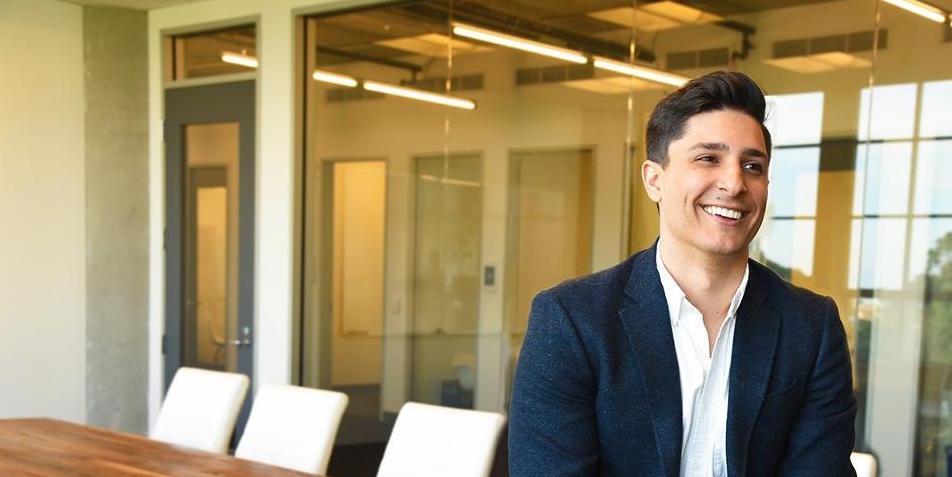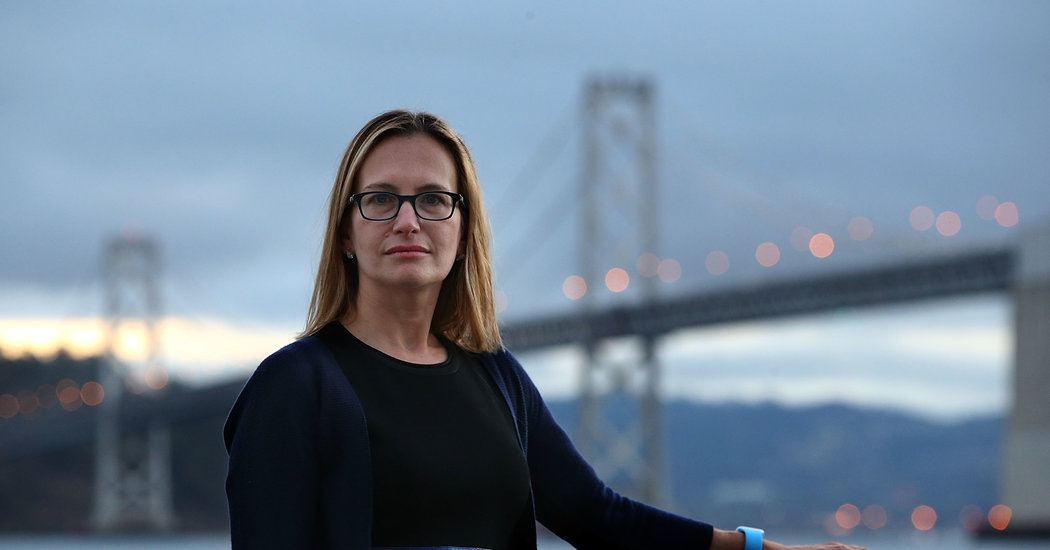Editor’s Key Takeaways
- Not all hours are made equal. Optimize and make the best use of limited time.
- Take a step back and ask where you can surround yourself with brilliant mentors and priceless opportunities.
- Pain is unavoidable for those building something truly meaningful.
Andrew took a business leave from the University of Pennsylvania Wharton School of Business after his sophomore year to join TokBox, a video communications startup backed by Sequoia capital, as a product manager. He graduated from Wharton in 2011. TokBox was acquired by Telefonica and Andrew moved on to start Atomic, a venture studio building entirely new companies from scratch.
Editor: Atomic is a venture studio with strong roots at Wharton. Andrew is one of its visionary cofounders. On our visit to Atomic we noticed the contrarian nature of the studio, a hub of entrepreneurial talent that favors market and distribution risk over technical risk. Atomic and Andrew have strong convictions in their ability to build impactful companies, their confidence is rooted in decades of experience in the early stage company ecosystem. As we left we felt the clear potential of their approach.
Andrew's Background
What is important for us to know about you?
I was born into a family that was all entrepreneurs. My grandfather and grandparents on both sides were immigrants who came out from the West Bank and Syria in the mid 1900s. It all started with the traditional American immigrant story. They were washing dishes and bussing tables and got kind of the bare education. They built a business independently and were contrarian in their thinking throughout the life of their career. The mentality in my family is that we don't necessarily care what you do, but what you do you have to be the best at it.
And so growing up that was something that was really important to me and my extended family. So when I got to Wharton, I had been an entrepreneur in very small terms, I had corralled groups of friends to start projects in high school. While I was at Wharton I was spending most of my time building a nonprofit company for the Middle East that I was really excited about, a micro lending company. And what I noticed was that I was most energized and most passionate when I was actually doing things, learning in tough situations, and putting myself in uncomfortable environments.
And so my story is a bit less traditional. I ended up dropping after Wharton after sophomore year, I joined a small startup out in San Francisco which had been backed by Sequoia Capital, it was about six people. I ran product for that company for four years. For me, putting myself in really tough situations is kind of the key to making an impact and feeling energized, so I ended up leaving Wharton to pursue that. We ended up building that company into a video technology company called TokBox that we later sold to Telefonica which is one of the largest telecom companies in the world. After that I moved to London and I ran a 6,000 person innovation team for Telefonica. Then that desire to be put in really hard situations and build things from scratch came back so I moved out west and started up Atomic, a venture studio, with some close friends and peers from Wharton that I had known for a long time. We pursued a model which we believed was a much more effective way of allocating capital and building companies.
So at a high level I think I had been an entrepreneur for a long time. What I always loved doing was putting on shoes which were much bigger than me and seeing if I could fill them.
What other paths could you have gone down?
Not surprisingly I was looking at investment banking and consulting. It’s really quite difficult to do something like moving to San Francisco when all of my closest friends, peers, and all of the people that I respected were from Wharton and moving to New York. They were working in banking and private equity, and their careers, starting from Wharton, had a fairly linear and expected behavior.
You'd join as an associate, you'd become a vice president, then partner. Then you're 30 years old making this much money and have so-and-so title, it is really quite difficult to say "no” to something so laid out and linear.
But for me I have instinctively been someone who either needs to be the best at what they're doing or do something incredibly interesting. So sophomore year when I was evaluating options at JP Morgan, Goldman Sachs, etc. I knew I didn't have the financial brain to put me in the one percent, I knew I was good but I wasn't the best, and the idea of going down a path that was so laid out for me was really quite constraining. I felt like it kind of sucked all the wind from my sails. It was quite deflating in nature. But then the idea of taking a bet on myself, moving to San Francisco, being in an environment where my success was driven directly by my day-to-day actions and depended on how I did as opposed to a much more linear path that was constrained by a structured environment — to me, that was unbelievably exciting.
It was an opportunity to take a bet on myself, the opportunity to get ahead in many ways, and the opportunity to do something very, very different. And I'm very thankful and blessed that I did that and had great advisors that were able to help me. At that time in the early 2000s, it was not something that people did coming out of Wharton and my hope is that over time this becomes a much more comfortable route for a lot of the smartest brains that we have in that school.
College and TokBox
How did you go about designing your college experience and curriculum based on your specific goals?
I took a bit of a non-traditional path. Structured within the management concentration at Wharton I studied venture capital. I was really proactive on day one by surrounding myself with professors that were teaching very relevant courses, trying to get myself into engineering classes around product design and engineering entrepreneurship, and many types of things that weren't really laid out in a traditional concentration back then. The opportunities at Wharton are really quite outstanding, the abilities to dive deep vertically into one specific subject is powerful, and so I put a lot of time into trying to craft the few years there into making them as practically helpful as possible for when I graduated and came back to San Francisco to try and build something.
What was it about TokBox that you really loved: the technology, team, product, or something else?
At a really high level something I really believe is that you can get excited as an entrepreneur or an operator about a lot of different ideas. Some of the best operators and executives I've ever met mostly like solving hard problems and being surrounded by phenomenally brilliant people more so than they have a strong passion towards an individual industry. So for TokBox it wasn't the video in particular that attracted me. I think video technology at the time was really coming up from a market standpoint and growing rapidly, you had things like ChatRoulette, Microsoft acquiring Skype, Salesforce building out chat experiences, and today you have things like Twitch.tv, Meerket, Periscope and all of these. At the grand level I believed in the market, I believed the technology was valuable and the usage would be growing consistently. What really got me excited though were the people, they were all ex-operators, they were backed by Sequoia Capital, Bain Capital Ventures, Ron Conway at SV Angel, and the board of directors was absolutely brilliant.
I was surrounded by people who I knew were smarter than me, people who I'd been researching. I'd learned from them via their blogs and things of that sort for so long already. That's really what got me — the opportunity to learn and be taught and mentored.
Going back to the idea of grit, what were the inflection points at TokBox, specifically the lows of the lows, the most painful moments that you had?
There's probably a couple dozen of them that I could think of. TokBox was in every way the stereotypical Silicon Valley story. Our founders left the company the week before I started, they were having conflicts with the venture community and eventually left. We went through the process of hiring a new CEO and executive team, and a couple years later we pivoted, which is another Silicon Valley thing to do. I had the opportunity to launch dozens of products that failed — I learned all types of things about momentum and people management and expectation management and board management.
We went through a number of rounds of financing — one of which was during 2008, which was a really brutal time to raise capital in the valley. And then we were able to experience a lot of acquisition options that didn't go through and failed, which were close but didn't happen, and then finally, thankfully we were able to land a really phenomenal home for the company and a great exit. If you watch Silicon Valley you go through all of those stages of building a company and kind of in a silly way I was able to experience all of those, which was pretty exciting.
How did you manage your psychology during the rough times you faced in the startup world?
I mean at the time you want to avoid all the pain but in retrospect what’s clear is that it’s impossible to avoid any of the pain.
But there are things you can learn and do better time after time which is one of the beautiful aspects of the Atomic model. But the struggles that companies have will always exist. The saying "what doesn't kill you makes your stronger" is 100 percent accurate in the startup world. So when people come to me and say, "I want to be a founder or join a small startup, what do you think?", I always caution them: unless they are really bought into building something, I recommend they should do something else. Those hardships, they'll always be there, it’s often what filters out the best from those who are just good, which is a pretty big distinction. And it’s almost always necessary to build something meaningful.
When you decided to leave Wharton were you dropping out or was it just another step in exploring options?
Wharton was really phenomenal in giving me a lot of time to evaluate working in Silicon Valley. They give you the capacity to take a business leave, so I was able to work in San Francisco and then eventually a couple years later was able to graduate, which was phenomenal, while still having that opportunity to explore some more immediate passions.
Atomic
Why does Atomic value distribution so much?
Twenty years ago when you went to raise venture capital you were physically building something new, like semiconductors or some kind of new technology like cloud that had never been created before and the cost of doing so was exorbitant. The cost of setting up cloud infrastructure ten years ago was probably 100 times as much as it is today. So over time what we saw is that building companies became more of market risk versus technology risk.
Historically it was technology risk. Now really the questions are if something will be adopted, will people love it, will they use it, will they share it with friends, how will they access it, will it be valuable for their business. It’s not a question of if we can actually build it. Some companies obviously are different: AI or self driving cars, some of these are true technology risks, but for the majority of companies and the majority of market cap you see coming out of Silicon Valley these days it’s really market risk — that is really what we spend time on at Atomic.
We ask how you de-risk something, how you evaluate go-to market models, how you test them as much as possible early to really understand exactly what the potential is of the business and how can you use those methods to reinforce and re-educate the product decisions being made early on to get to product market fit early even faster. It is something that is only now possible due to the decreased cost of open source technology and platforms like Twilio and AWS and Heroku and all of these things.
How do you do effective diligence on your company ideas?
One of the exciting aspects of Atomic is that we do not play in only one market. We don't focus exclusively on healthcare or exclusively on enterprise software businesses. We like to play in a lot of different markets. So of the eight companies that we started in the last couple of years, a couple are consumer internet, a couple are small business direct sales driven, a couple are enterprise, a couple are in healthcare. One of the energizing aspects of the model is that we're able to use many of the patterns that we recognize and apply them into different verticals.
We go through a process of validating ideas. We have a book of about 400 to 500 ideas that could be really great companies. The way we do that is a few fold: one is things that we're excited ourselves to see in the world, that we believe that a company could fix or improve or meaningfully change the behavior of billions of people. Another question is, is this something that could generate a billion dollars in revenue? Could a billion people use this and would it improve their lives? One more thing we think about is what are products, experiences, and opportunities that exclusively wealthy and those with opportunity have had and how can we make those mass market, how can we give to the masses what has once been only available to those in the one percent?
That’s something when you think of a company like Uber was really a driving force — being able in one click to have a limo arrive was something that was once just available to the very, very few, now they've been able to go mass market and turn that into a product where the lower average income in India or China or the developing world can actually have access to transportation.
ZenReach is a thriving company built by Atomic. How did the journey from idea to successful company unfold?
Zenreach is a phenomenal company and it’s a really great case study for Atomic. When we started that company it went through a lot of different forms. It started out as a company based on wifi and shared communications, then we started to see the value of offline experiences and converting offline customers. We eventually got to what Zenreach is today, which is a network aimed at small businesses for understanding their customer base and educating them on the companies offerings and doing it in a way which is incredibly simple for businesses to see a return on investment.
The way Atomic works is we build engines and once you find that engine where you know the inputs, outputs, and economics work, that’s when we can really accelerate unbelievably fast. So in the last year ZenReach has raised a tremendous amount of capital from some of the best investors in the world, added Peter Thiel to their board, who's one of the all time best investors, and are accelerating very quickly. I couldn't give more praise to the team that is able to push through and keep chugging along.
What has been your breakout moment?
Jack Abraham, the founder and CEO of Atomic, likes to talk about this a lot: not all hours are made equally. At Atomic we physically look at our calendars at the end of the week and we quantify how much of each of the blocks really drove the business and made step function increases. We ask what we could not have been a part of and what would've still been fine. And it’s really just a question of leverage of time. Dropping out of Wharton and joining TokBox, there was no true logical explanation that I could have outlined. It was an instinct, it was an instinct on people, it was an instinct on being surrounded by mentors that could teach me, and it was an instinct of wanting to be in an environment that I would be forced to grow. When put in a situation where you need to grow, I believe most people will. Taking those kinds of bets have been incredibly valuable to me and they've been the cornerstone of my career. And there have only been a few of them, but grabbing them has been incredibly important.
So I would encourage people to step back a little bit and find environments where they are able to take a bet on themselves and be in a room with brilliant people and brilliant mentors and struggle with the reality that they will have to do something spectacular. And if they can put themselves in those situations more often than not I think it’s a really phenomenal career move.
Disclaimers: The views presented here are solely those of the interviewee. They do not represent Atomic or any of the other individuals or institutions named above.



